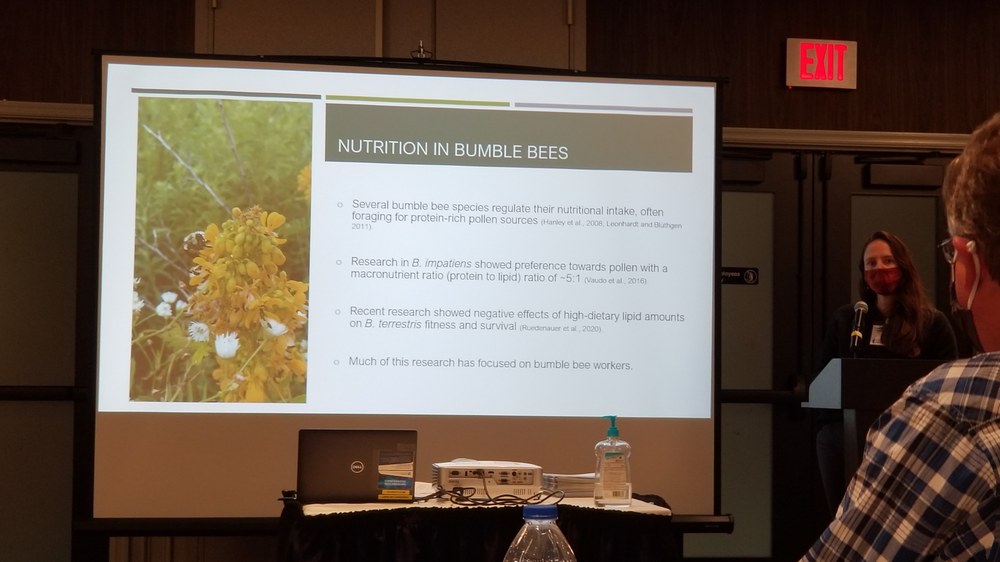Posted: November 22, 2021
IBC Education Specialist Heather Desorcie reports on the success of this year's Center for Pollinator Research winter symposium

CPR symposium sessions covered a diversity of topics such as pollinator physiology, health, nutrition, genetics, modelling and education.
“When a caterpillar bursts from its cocoon and discovers it has wings, it does not sit idly, hoping to one day turn back. It flies”. This quote by author Kelseyleigh Reber reflects the resolve of various scientists, innovators, and educators who attended the 2021 Penn State Center for Pollinator Research Symposium. After nearly two years of remote meetings, learning and instruction, the CPR was excited to finally welcome leading researchers and educators to gather and further our understanding and conservation of pollinators. Over ninety scientists, educators, stakeholders (representing beekeepers, growers, industry and non-profit organizations), and members of government agencies gathered for the two-day Symposium to share project outcomes and future goals, and forge new innovative collaborations.
This November, the Center for Pollinator Research hosted a winter research symposium at The Graduate Hotel in State College. The symposium showcased the work of undergraduates, graduate students, postdoctoral researchers, university professors, extension educators, K-12 teachers, and members of the Pennsylvania Pollinator Protection Plan (P4) task force. Additionally, fourteen Penn State departments and programs were represented. Attendees traveled from all over Pennsylvania and beyond to share research performed in states spanning Texas, California, Maine, Illinois, North Carolina, Puerto Rico, and Pennsylvania. The conference was structured to highlight the interdisciplinary nature of the study of pollinators. Themed symposium sessions flowed naturally, and included topics ranging from genetics, parasites, pesticides, nesting, nutrition, ecology, land management, engineering to education and more.
A goal of the CPR Symposium is to inspire collaboration. During breaks between presentations, the room buzzed with the exchanging of ideas. Although pollinators face many threats such as habitat loss and degradation, global climate change, and insecticide use, there are clearly many dedicated individuals committed to supporting diverse pollinator communities across urban, agricultural and natural landscapes.
The Symposium was supported by the Penn State Huck Institutes for the Life Sciences, Institute for Sustainable Agricultural, Food and Environmental Sciences, and the College of Agricultural Sciences.
Watch this space for the announcement of next year’s CPR Winter Symposium. To stay up to date on news, events, and research, subscribe to the Center for Pollinator Research/Insect Biodiversity Center newsletter by emailing Natalie Boyle (Natalie.Boyle@psu.edu) or by visiting the Insect Biodiversity Center webpage.

